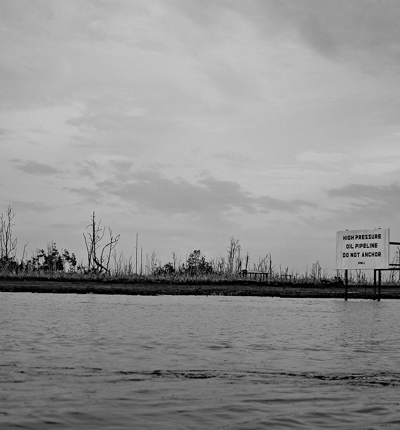
Shell - Ogale and Bille
In October and December 2015, the Ogale and Bille Communities in the Niger Delta filed claims in the English Courts against Shell. The cases involve devastating oil pollution caused by Shell’s operations.
In October and December 2015, the Ogale and Bille Communities in the Niger Delta filed claims in the English Courts against Shell. The cases involve devastating oil pollution caused by Shell’s operations.
A legal briefing about the claims is available here.
Ogale
At least 40 oil spills from Shell’s infrastructure in the Ogale community since 1989 have caused serious contamination to the community’s land and waterways. The United Nations Environment Programme (UNEP) carried out testing there in 2010 which found that the oil contamination in the community’s groundwater was 1,000 times higher than the levels allowed in Nigerian law. UNEP also found that water in the community was dangerous and unfit for human consumption. UNEP stated that the drinking water situation in Ogale “warrants emergency action ahead of all other remediation efforts” and that exposure to these levels of hydrocarbons was “certain to lead to long term health consequences”.
Ogale is a fishing and farming community. It relies on the Ogale Stream which runs through the land for farming, drinking, washing and fishing. The Community also used boreholes, but these are now so polluted that they are not safe for consumption or use. The oil pollution has also ruined the Community’s farmland.
The Community have instructed Leigh Day to compel Shell to clean-up the oil and to get financial compensation for the losses they have suffered.
Bille
Bille is a riverine community which consists of around 45 islands. Between 2011 and 2013 oil spills from Shell’s apparatus caused massive oil spills into the rivers around the community. An estimated 13,200 hectares of mangrove swamp has been damaged by the pollution. This has killed most of the fish in the rivers, and Bille’s fishing population has been left without a source of food.
The jurisdiction litigation
The Ogale and Bille communities’ claims were joined together in the courts. The communities allege that Shell’s parent company, Royal Dutch Shell (RDS), which is based in the UK, is responsible for the oil pollution because it has some control and oversight over operations in Nigeria, where many thousands of oil spills from Shell pipelines have occurred since the company started operating in the 1950s. They also allege that the Shell Petroleum Company of Nigeria, which is a subsidiary of RDS, is also responsible.
RDS disputed that it is legally responsible for the oil spills, saying that it is just a parent company and that it has no legal duty to people in Nigeria. However, after five years, Shell’s jurisdictional challenge was rejected by the UK Supreme Court in February 2021.
In this landmark judgment, the Supreme Court ruled that there was “a good arguable case” that RDS was liable for the environmental harm caused by its Nigerian subsidiary thereby setting an important precedent on the potential liabilities of parent companies for the actions of their subsidiaries.
Overturning the Court of Appeal’s 2018 finding that there was no arguable case that RDS owed a duty of care to the affected communities, the Supreme Court held that the lower court had erred by conducting a ‘mini-trial’ instead of focusing on the pleaded cases, especially before disclosure had been obtained and witness evidence properly tested.
It also clarified that the Court of Appeal was wrong in its view that a parent company, through enacting group-wide policies and guidelines, could not incur liability for a subsidiary. Citing Lungowe v Vedanta Resources Plc [2019] UKSC 20, another Leigh Day case, the Supreme Court reiterated that there were multiple ways through which a parent company could take on responsibility for a subsidiary, including through management; the provision of defective advice or policies; the implementation of group-wide policies; and holding out that it exercised a degree of supervision or control over a subsidiary. Consequently, the claimants were found to have an arguable case that the UK domiciled RDS owed them a duty of care. Following the Supreme Court judgment, SPDC submitted to the jurisdiction of the UK courts, meaning the communities can now proceed with their claims to trial against both RDS and SPDC. The trial is likely to lead to the disclosure of internal Shell documents about its environmental practices in Nigeria.
The Supreme Court’s finding was bookended by two Dutch judgments against Shell, and cumulatively these decisions have taken great strides in holding the company accountable for environmental damage. First, in January 2021, the Dutch appeals court found RDS responsible for harm caused by two oil pipeline spills in Oruma and Goi in the Niger Delta, ordering it to pay compensation to those affected and take measures to prevent future damage. Then, in May 2021, the Hague District Court found that RDS owed Dutch residents a duty of care to reduce its CO2 emissions by 45% (net) by the end of 2030 (compared to 2019 levels), recognising that its activities were contributing to devastating climate change.

